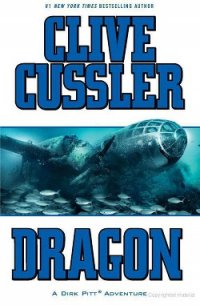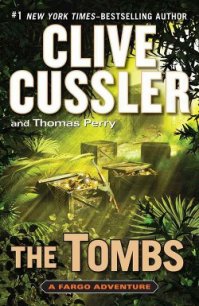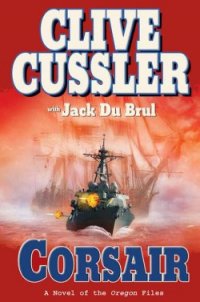The Jungle - Cussler Clive (электронную книгу бесплатно без регистрации TXT) 📗
Although the rig was old, it was still much too valuable to be left abandoned like this. If nothing more, she represented several million dollars’ worth of scrap metal. He knew it wasn’t unusual for platforms to go unused for months at a time, but years? It didn’t make sense.
At the end of the hallway was a staircase leading up to the next level. He climbed it quickly. It was hot inside the steel box, which had been baking all day in the tropical sun. There were two doors leading off the landing. One led to another hallway and probably the crew’s rooms. When he opened the second, he was hit by a wall of chilled air. The change in temperature was so acute he staggered back a step before moving into the vast room beyond.
“What the hell?” he said aloud, not sure whether or not to believe what his eyes were telling him.
And then it finally dawned on him. He was on the J-61. Of all the rotten luck, this was the one rig that was off-limits to all Ministry personnel. He didn’t know the reason behind the order, only that it came from on high, and he’d been told in no uncertain terms that he was to never, ever set foot on this platform for any reason.
But he didn’t understand. What was the big deal? All he saw were a bunch of—
“Hey, you!”
The voice had come from behind him. Someone had approached down the hallway. Abdullah turned, raising his hands in a placating gesture. “I’m sorry. You see, my helicopter cra—”
The man slammed a fist into Abdullah’s stomach with enough force to knock him off his feet. Before he could even think about defending himself, he was struck again, a punch to the temple that stunned him into paralysis. And then a heavy boot crashed into his face, and Abdullah’s world went black.
He came to slowly, like that morning after he and some friends had flouted Islamic tenets and gotten blind drunk. His head ached, his stomach was on fire, and he could barely open his eyes. He saw nothing but blurred edges and blobs of light. Nothing made sense. He heard men’s voices and tried to turn his head. His vertebrae felt fused. He had never been in so much pain in his life. What happened? he wondered.
The voices. The man. A guard perhaps. The beating. It came back in a rush. He tried to move but realized he was tied to a chair. Panic seized him, sharpened his senses a little, and to his horror he realized he was back in the helicopter, strapped in next to the singed corpse of the pilot.
Someone had flipped the bird back onto its landing struts and secured him into his seat. He tried to unclasp the harness, but the buckle had been wound with duct tape so many times it was a big silver lump in his lap. He felt movement.
They were pushing the chopper!
He looked out just as the horizon soared over his head. The windshield was filled with a view of the ocean, and then the acceleration hit him. He was falling, strapped helplessly as the chopper plummeted off the rig.
The Robinson hit the water at near-terminal velocity, snapping Abdullah’s neck and mercifully ending his life before he could drown.
Twenty minutes later, when the administrator of the rig he was supposed to start inspecting contacted the Ministry, an alert was sounded. Rescue helicopters and patrol boats were launched immediately. Of the Robinson, its pilot, and its lone passenger, no trace was ever found. One canny chopper jock even circled rig J-61 “just in case,” but it looked as deserted as ever because any trace of the fire had been studiously wiped clean. The secret it harbored was safe once again.
5
CABRILLO HAD SPENT THE FIRST HALF HOUR OF THE FLIGHT in the back of the Gulfstream V’s luxurious cabin in contact with Max Hanley. Hanley was the Corporation’s vice president, the Oregon’s chief engineer, and Juan’s best friend. He’d been with Juan since he’d first conceived the idea of a private security company based on a ship. All the crew knew this, but one story few had heard was how the two men had hooked up in the first place.
Cabrillo had spent his professional career as a NOC, a non-official cover, for the Central Intelligence Agency. This was bureaucratic-speak for a spook. Fluent in Arabic, Russian, as well as Spanish and English, he’d been posted to some of the hottest spots in the world and had gotten himself into and out of more jams than he could count.
When he’d come to the realization soon after the Berlin Wall fell that the end of the Cold War would mean an increase in regional conflicts, and that none of America’s intelligence agencies were going to be adroit enough to respond, he’d decided to go out on his own as a private contractor. The Corporation would tackle those jobs that were so black no one else could handle them with any kind of deniability. Juan had enough contacts in the government to ensure they would be busy for years.
He’d talked it over with Langston Overholt, his mentor. Lang had regretfully agreed with Cabrillo’s assessment. He hated to lose his star agent but also recognized the possibilities the Corporation would give him.
He’d suggested that Juan track down one Maxwell Hanley. When asked who Hanley was, Lang had explained that he’d been the chief engineer aboard the Glomar Explorer, the famed Howard Hughes-built ship that had partially raised the Soviet Golf-class submarine, K-129.
Juan had protested that the Glomar had done its thing in 1974, which would make Hanley simply too old to work as a mercenary.
Lang had told him, in turn, that Hanley wasn’t on that first expedition but a later one that was still classified top secret. Hanley had overseen the ship’s operations while she was supposedly mothballed at Suisun Bay in California. In fact, they had mocked up an old freighter to look like the Glomar Explorer while they had taken her to a spot off the Azores Islands to raise a Typhoon-class ballistic missile submarine with its full complement of twenty ICBMs and two hundred nuclear warheads. That had been in 1984, and while Hanley had gotten his start as a riverine warrior in Vietnam, he was too ornery to be considered old.
Cabrillo found Max running a scrapyard outside of Barstow, California, and in the course of ten minutes had him tossing the keys to the place to his assistant and heading out the door. By the time the Oregon had been selected as their base of operations and her conversion work completed in Vladivostok by a corrupt Russian admiral who loved Yankee dollars and Korean girls in equal measure, the two men were like an old married couple. Sure they argued, but they never lost respect for each other.
Hanley later admitted he would have followed Juan out of the junkyard after the first sixty seconds of his pitch.
“So that’s him on paper,” Max said over the secure phone link. He was aboard their ship still anchored just off Karachi.
“Pretty damned impressive,” Juan opined. He’d called Max as they were driving along the six-lane superhighway connecting the Khyber Pass to Islamabad and asked him to run a full background check on Marion MacDougal Lawless. “Two years at Tulane, but he left and joined the Army as a Nine-Twelve-er.” Meaning the day after the September 11th terrorist attacks he’d walked into an Army recruiting station and signed on as a common soldier, like thousands of other brave men and women.
“Got into the Rangers, excelled by all accounts. He racked up a couple of combat citations, and after eight years opted out to join up with Fortran Security as a private contractor.
“Same skill set as a Ranger,” Max said, “only ten times the pay.”
“I know Fortran,” Juan countered. “They’re a top-notch outfit, so they pay more like twenty times.”
“Whatever,” Max said in his normally irritated manner. “He’s got an ex-wife and a daughter. Nearly all his pay goes to an address in New Orleans that I can only assume is the ex.”




